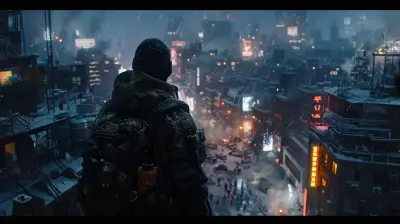A Look Inside the Hottest Video Game Acquisitions
16 August 2025
The gaming world isn’t just about flashy graphics and next-gen consoles anymore. Behind the scenes, it's getting downright cutthroat—and fascinating. Over the last few years, big-name acquisitions have been changing the landscape of the industry like a well-timed power-up. Companies are merging like Voltron, forming entertainment juggernauts that shape what we play, how we play it, and who even gets to join the game.
So, what's going on behind the scenes? Why are tech giants throwing around billions like it’s Monopoly money? And what do these moves mean for us—the gamers?
Let’s take a deep dive into the juiciest, boldest, and most game-changing acquisitions the industry’s ever seen.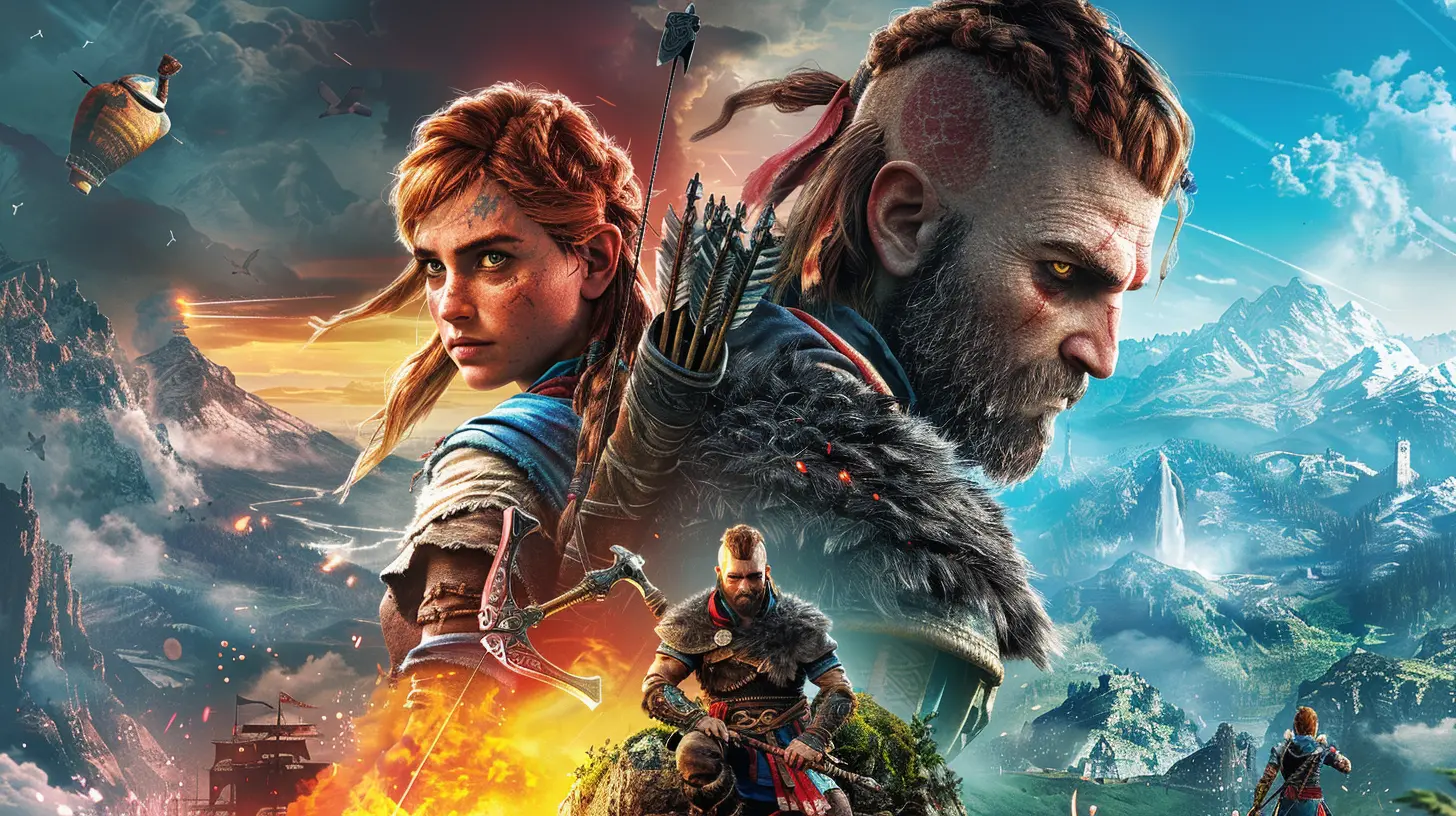
Why All the Mergers? What’s the Big Deal?
Before we get our hands dirty with the biggest buyouts, let’s talk about the “why.” Why are companies dropping billions to acquire game developers and publishers?The short answer: Content is king. But let’s get a little deeper.
Think of it like this: If you’re Netflix, you don’t want to keep relying on Disney or HBO for shows. You want to OWN Stranger Things, not just stream it. It’s the same in gaming. Companies like Microsoft and Sony don’t just want to provide the platform; they want to control the games too. The more exclusive titles you own, the more you lock players into your ecosystem.
Also, gaming isn’t just “for kids” anymore. It’s a multibillion-dollar industry that now rivals (and often outpaces) film and music. By buying up the right developers, companies are securing their future in an ever-competitive digital playground.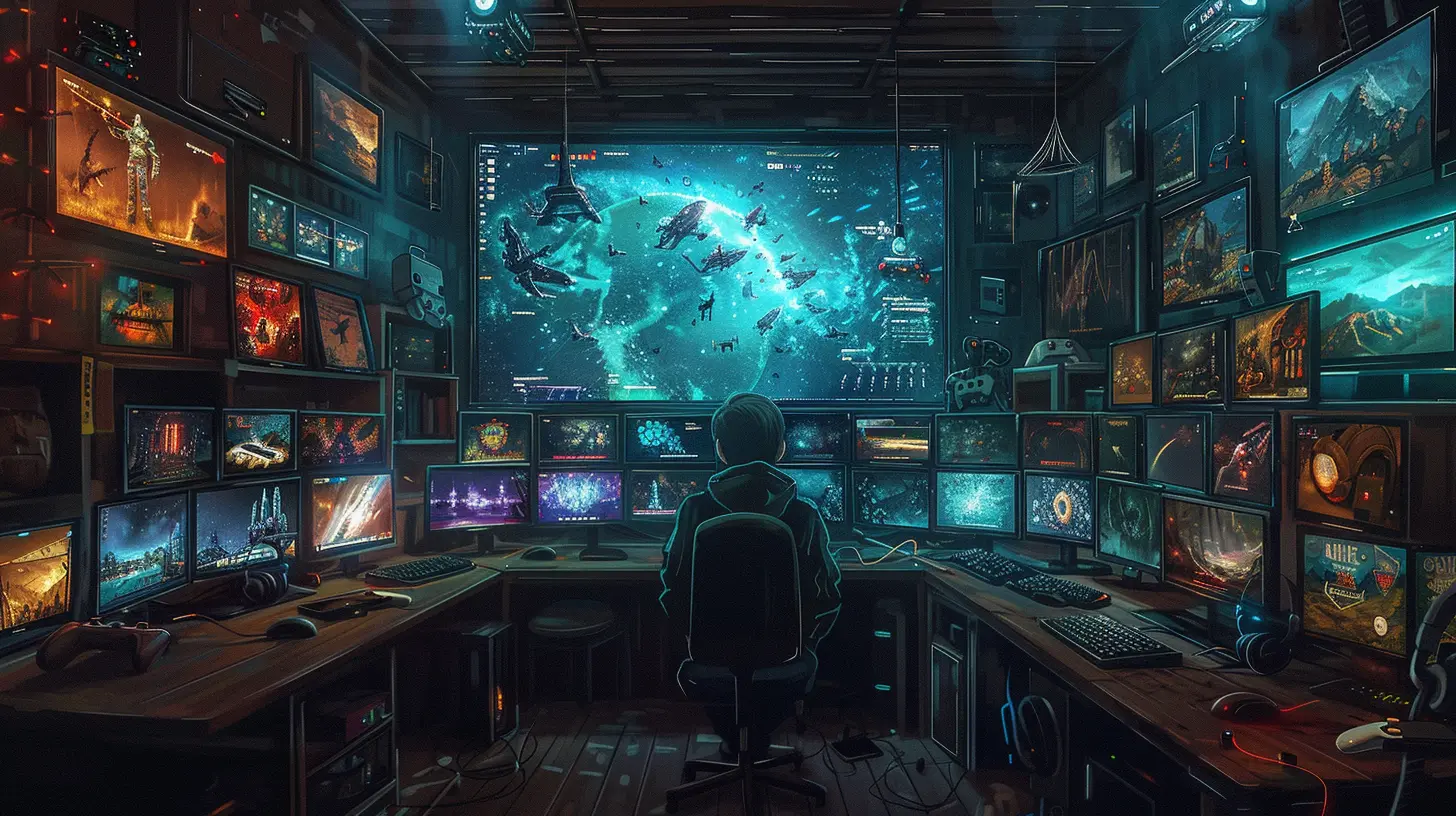
Microsoft’s Massive $68.7B Move: Activision Blizzard
Let’s start with the elephant in the server room—Microsoft’s headline-dominating acquisition of Activision Blizzard. This deal made Wall Street sit up and gamers spit out their energy drinks.What Makes This a Game-Changer?
We're talking about the creators of Call of Duty, World of Warcraft, Overwatch, and Candy Crush. Yup, even your aunt who crushes candies on the train is part of the equation.If Microsoft wanted to go full Thanos and snap half the competition out of existence, this move was the Infinity Gauntlet. This acquisition is not just about games—it’s about dominance. With this deal, Microsoft becomes the third-largest gaming company in the world, just behind Tencent and Sony.
And the strategy? It’s all about Game Pass. Microsoft is racing to build the "Netflix of gaming." More titles = more subscribers. If Call of Duty goes exclusive or hits Game Pass Day One? That’s a nuke-level power play.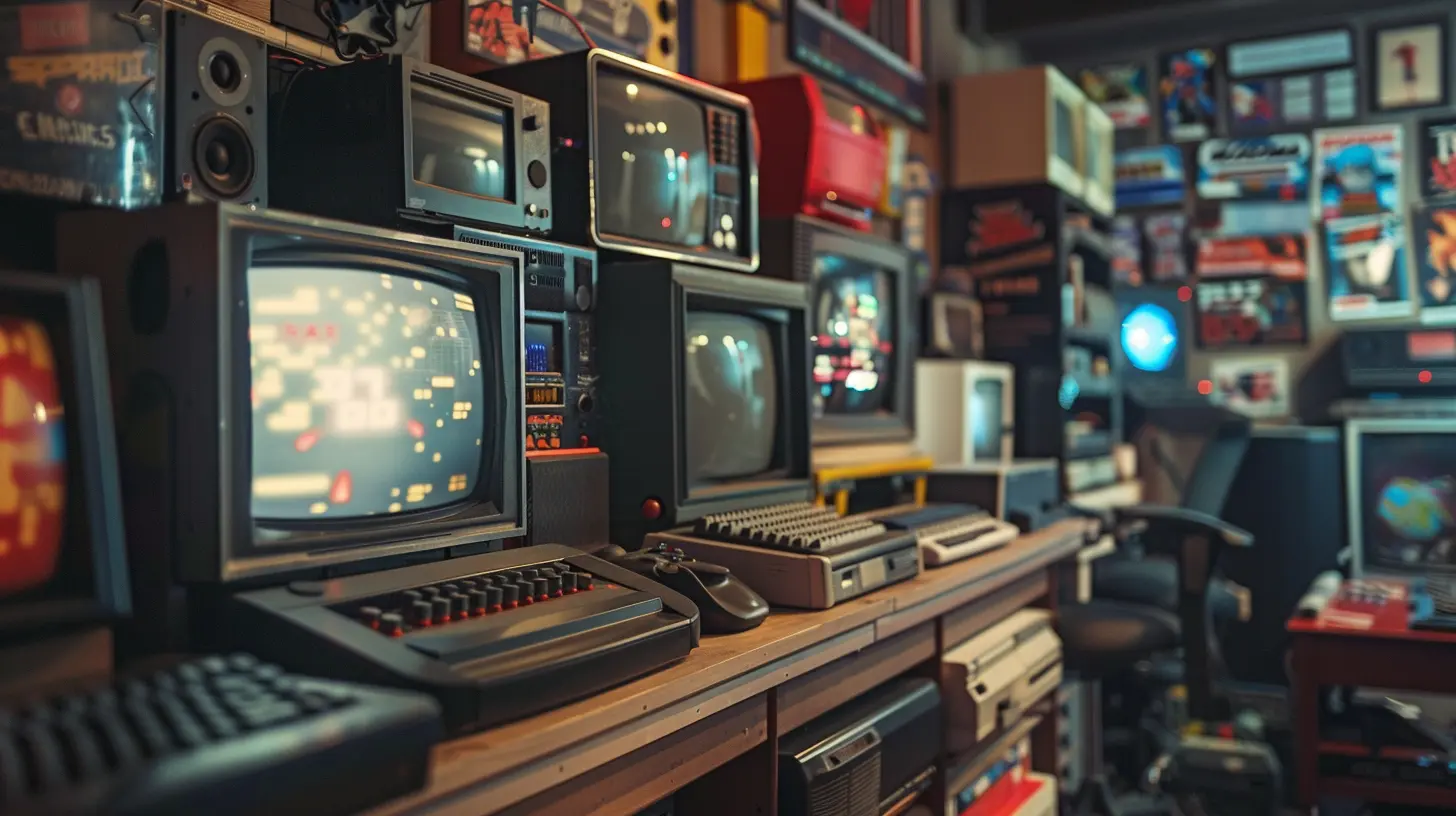
Sony’s Counterpunch: Bungie for $3.6 Billion
You didn’t think Sony would just sit there and let Microsoft steal the spotlight, right?In early 2022, Sony fired back by acquiring Bungie, the studio behind Destiny—and the original creators of Halo (ironic, right?).
Is This About Destiny or... Something More?
At first glance, $3.6 billion for one ongoing franchise might seem steep. But Bungie brings more than just a loot-shooter to the table. They’ve mastered the art of live-service games. Sony wants in on that pie, especially with their plans to launch multiple live-service titles in the coming years.This might not seem as headline-grabbing as Microsoft’s Activision coup, but it’s a strategic move. Sony's betting that in the future, success won’t just depend on big single-player blockbusters—it’ll also hinge on games that evolve, adapt, and keep players coming back week after week.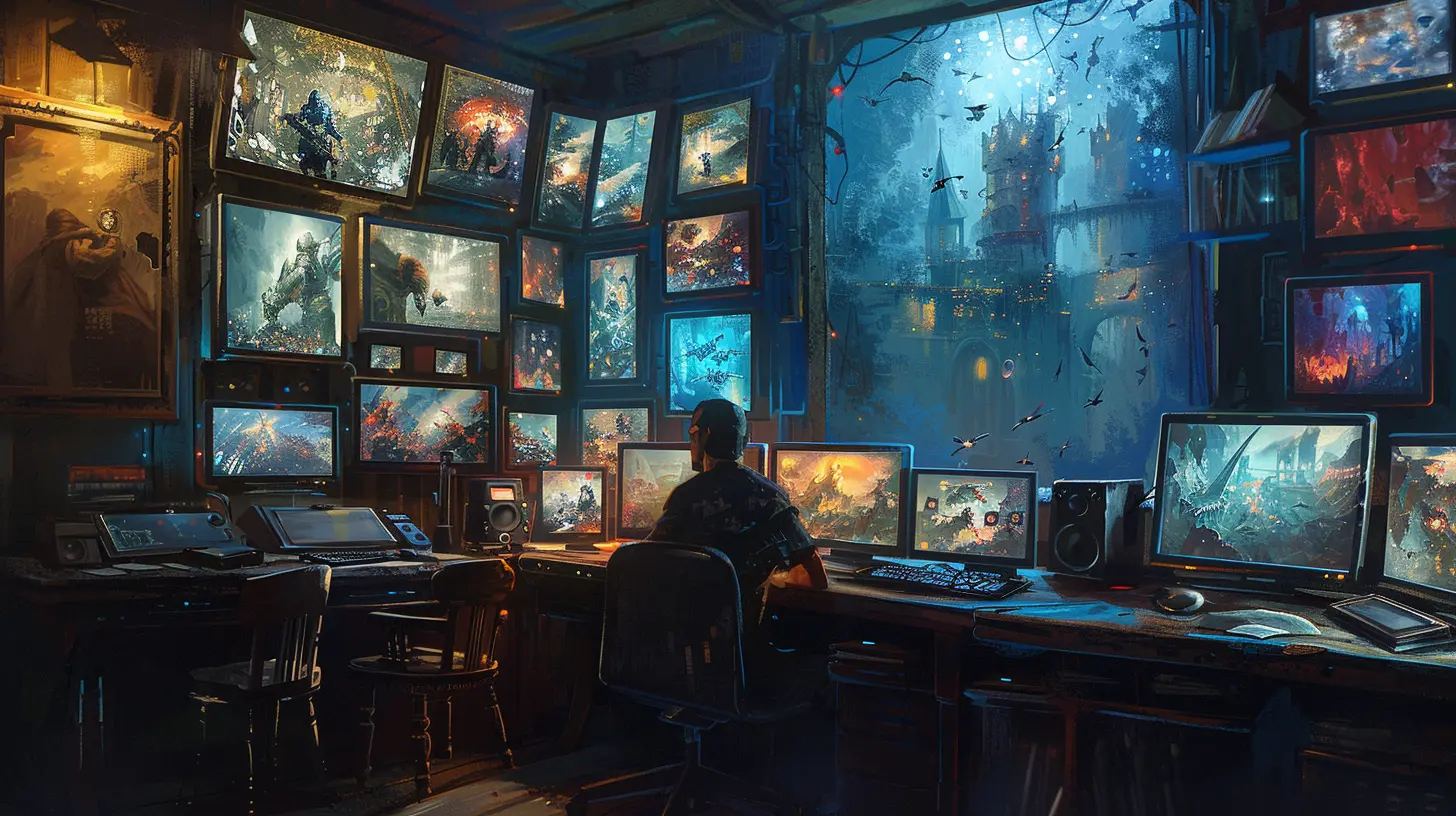
Tencent's Quiet Empire of Studios
While Microsoft and Sony duel on the mountaintop, Tencent has been playing the long game—like a stealthy rogue collecting XP in the shadows.They’ve bought stakes in Riot Games (League of Legends), Epic Games (Fortnite), Supercell (Clash of Clans), and many more. Sometimes it’s a majority stake, other times it’s just a sizable chunk, but the pattern is clear: Tencent wants a finger in every pie.
Why You Shouldn’t Ignore This
Tencent doesn't always go for headline-making buyouts, but they’ve been steadily building a global gaming empire. They understand that control over content creation—not just distribution—is the key to long-term success.The scariest part? Most players won’t even notice. You’ll just wake up one day and realize half your favorite games are backed by Tencent.
Embracer Group: Collecting Studios Like Pokémon Cards
If you haven’t heard of Embracer Group, it’s time to learn the name. This Swedish holding company has been on an absolute shopping spree, snapping up studios like a gamer hunting for platinum trophies.They own THQ Nordic, Gearbox (Borderlands), Saber Interactive, and more. In one single year, they bought 8 studios—including the rights to Tomb Raider and Deus Ex from Square Enix. Oh, and did we mention they also acquired Dark Horse Comics? Yeah, they’re getting into transmedia too.
What's the Strategy Here?
Embracer isn’t going for one mega-acquisition. Instead, they’re buying up talented mid-size teams, IPs with cult followings, and a ton of development power. Their endgame? To be a behind-the-scenes powerhouse, quietly controlling a massive chunk of the AA to AAA gaming market.It’s smart. It’s subtle. And honestly, kind of brilliant.
EA Buys Codemasters: Need for Speed Meets Formula 1
Electronic Arts, not one to be left out of the action, had its fair share of high-profile acquisitions too. The biggest in recent years? Codemasters.Why Codemasters?
EA’s already got sports covered with FIFA (now EA Sports FC) and Madden. But when it came to racing games, they were spinning their wheels a bit. Enter Codemasters—the brains behind Dirt, Grid, and the Formula 1 official game series.With this acquisition, EA bolsters its racing lineup and adds yet another annual sports title to its dominant roster. Racing fans may be divided about EA’s involvement, but there’s no denying the company now has pole position.
Take-Two Acquires Zynga: The $12.7B Mobile Power Move
Alright, let’s switch gears to mobile. Take-Two Interactive, the folks behind GTA and Red Dead Redemption, spent a jaw-dropping $12.7 billion to acquire mobile game giant Zynga.Yup, that Zynga—the FarmVille people.
Think This Is a Boring Move? Think Again.
It’s smart AF. The mobile market is massive. Like, “bigger than console and PC combined” massive. And Take-Two wants in.This deal gives Take-Two a direct path to mobile gaming dominance. We’re probably going to see mobile spinoffs of GTA, Borderlands, and NBA 2K soon enough.
If you thought mobile gaming was just for casual players, think again. It’s serious business—and companies like Take-Two know it.
Ubisoft: Still Independent, But For How Long?
Every time there’s a new acquisition, rumors swirl that Ubisoft might be next. The French publisher owns massive IPs like Assassin’s Creed, Far Cry, and Rainbow Six. But recent years haven’t been kind—internal scandals, creative fatigue, and missed financial targets have made Ubisoft vulnerable.So, What’s Holding It Back?
There’s a good chance Ubisoft is resisting takeovers to maintain independence. But in today's climate, independence can be risky. If the right company comes knocking—maybe a platform holder, maybe a mega-publisher—it could be game over for the French giant.Keep an eye on this one. It’s a powder keg waiting for a spark.
What All This Means for Gamers
With all these acquisitions, it’s fair to ask: Are we watching the death of gaming freedom or the birth of something bigger?Good question.
On one hand, big money tends to bring polish, marketing muscle, and stability. On the other hand, it can crush creativity, homogenize content, and build walled gardens where only specific ecosystems thrive (looking at you, exclusives).
The Pros:
- More money for developers = better tools and support- Strong IPs get revived and polished for modern platforms
- Game subscriptions like Game Pass get juicier
The Cons:
- Fewer indie studios = less risk-taking and originality- Games can get locked behind exclusivity
- Studios may lose their creative voice
As with everything in gaming, it’s a double-edged sword. But one thing’s for sure—things are changing. Fast.
Final Thoughts: The Gameboard Is Shifting
The world of video games isn’t just about high scores anymore—it’s about high stakes.The seismic wave of acquisitions we’re seeing is reshaping the very foundation of how games are made, marketed, and played. The power players are shifting, new alliances are forming, and your favorite studio might have a new boss by the time you finish reading this sentence.
Whether this is good or bad depends on how these giants behave post-deal. Will they nurture creativity or chase profits? Support developers or micromanage them to death?
Only time will tell. But one thing’s clear: the game has changed—and we’re all playing on a much bigger map now.
all images in this post were generated using AI tools
Category:
Gaming IndustryAuthor:

Whitman Adams
Discussion
rate this article
2 comments
Olive McBride
What an insightful read! These acquisitions not only reshape the industry but also reflect the passion and creativity driving our favorite games. Excited to see what comes next!
December 15, 2025 at 5:06 PM

Whitman Adams
Thank you! I'm glad you enjoyed the article. Exciting times ahead for the gaming industry!
Ardyn McGrath
This article provides valuable insights into the evolving gaming landscape. It's fascinating to see how acquisitions shape innovation and influence player experiences.
August 20, 2025 at 2:35 AM

Whitman Adams
Thank you! I'm glad you found the insights valuable. The impact of acquisitions on the gaming landscape is indeed a fascinating topic.

